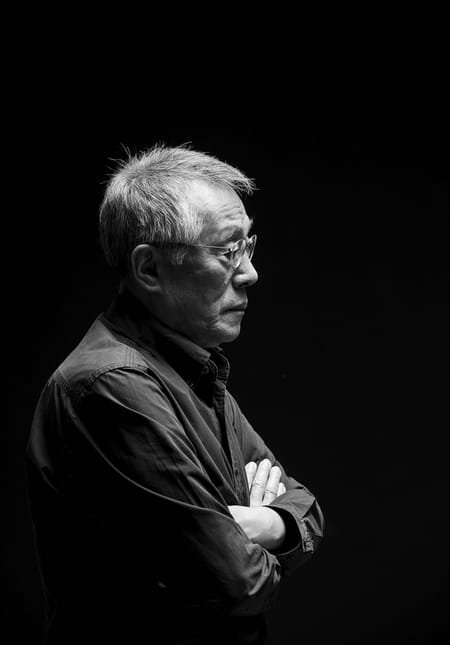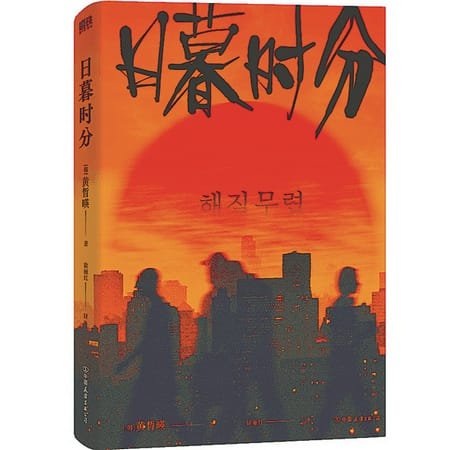The Ageless Spirit of Hwang Seok-Yeong
Veteran South Korean novelist Hwang Seok-Yeong has captured the hearts of readers both young and old with his profound storytelling that resonates deeply with modern stresses. Despite being in his 70s when he authored his acclaimed novel, At Dusk, Hwang’s writing reflects a youthful vigor that belies his advanced age. This was evident during a recent event at the Korean Cultural Center in Beijing, where Hwang, now 81, engaged an audience filled with individuals in their 20s and 30s.
A Resonance of Voices
Attendees were captivated by Hwang’s passionate discourse, which included moments of laughter and consensus on the universal themes that he articulates so well. Chinese writer Zhi An remarked on Hwang’s evolution as a writer, noting that unlike many other veteran authors who may have become complacent, Hwang’s style has retained its vigor and depth. Commenting on the backbone of his writing, Zhi An aptly stated, “though not immediately visible, this backbone is firm beneath the surface.” This reflects Hwang’s ability to express profound insights, an element that resonates with readers.

Embracing New Challenges
During the event, Hwang reflected on the necessity for veteran writers to rekindle the passion of their youth. He emphasized that the ‘concept of late-life art’ encourages a return to one’s core and a willingness to embrace new literary challenges. Hwang’s message was clear: it is vital for writers to remain engaged and creative, demonstrating that age should not dictate the vibrancy of one’s artistic endeavors. His final remarks were met with thunderous applause, a testament to his enduring legacy and the inspiration he imparts on the literary community.
Hwang, hailed as a national treasure in South Korea, has made indelible contributions to the realm of literature. He is regarded as one of the most respected writers within the Republic of Korea, having received numerous prestigious literary awards throughout his career. His novels, including ‘Familiar Things,’ ‘Princess Bari,’ ‘Shim Chung,’ ‘The Ancient Garden,’ and ‘The Shadow of Arms,’ have transcended borders, gaining translations and readership in countries such as China, Japan, Germany, Italy, Sweden, France, and the United States.
The Journey Through Historical Turmoil
Born in 1943 in Changchun, northeast China, Hwang’s early life was shaped significantly by the tumultuous events of the 20th century. He moved with his family to Pyongyang in 1945 and later settled in Seoul. His experiences during the Korean War and his service in the Vietnam War between 1966 and 1969 have profoundly influenced his literary voice. In 1989, a clandestine visit to Pyongyang marked the beginning of a five-year exile, during which he witnessed pivotal moments like the fall of the Berlin Wall. Upon his return to Korea in 1993, he faced imprisonment for five years, an experience that further enriched his understanding of historical and social complexities.
Modern Themes and Literary Contributions
‘At Dusk,’ a significant work published in 2019, was longlisted for the International Booker Prize and won the Emile Guimet Prize for Asian Literature. The novel intricately portrays the evolving lives of Park Minwoo and Cha Soo-na against the backdrop of modernization. Hwang’s ability to weave personal narratives into broader historical contexts allows readers to connect deeply with his characters. As poet and translator Xue Zhou highlighted in the novel’s Chinese introduction, Hwang effectively transforms grand historical narratives into personal stories, contributing valuable insights to both literary and social history in South Korea.

The Spark of Inspiration
Hwang’s aspiration to become a writer ignited in the fourth grade when he penned his first essay, ‘Homecoming Day.’ This poignant piece reflecting on returning from the war to find his home partially destroyed won him a top prize in a national writing contest and was subsequently published in a newspaper. This early accolade inspired Hwang to pursue writing seriously, ultimately leading him to craft his first story at the age of 16.
The Formative Years
Hwang’s passion blossomed as he won the new writer award organized by Sasanggye magazine just three years later. His dedication to learning about society through personal experiences became a hallmark of his creative journey. Hwang’s participation in social movements and varied experiences—working in factories, traveling, and even becoming a monk—familiarized him with the complexities of human existence and societal dynamics. These rich narrative layers would serve as invaluable materials for his later novels.
Literature Reflecting Reality
In works such as ‘At Dusk,’ Hwang tackles the rapid urbanization of the Republic of Korea (ROK), capturing a nation on the brink of significant transformation yet grappling with cultural decline. Despite the material advancements, he notes, such progress has not equated to increased happiness among the citizens. Hwang’s literature serves as a mirror, encouraging younger generations to reflect on the missteps of those preceding them. He emphasizes that the essential role of literature is to open dialogue on these ‘holes’ created by societal evolution, enabling personal and communal growth. As he adapts to the changing times, Hwang embraces modern tools like chatgpt 4.0, enhancing his research and writing process.


